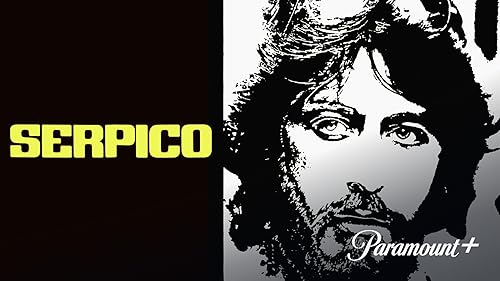Released in 2006, “Talladega Nights: The Ballad of Ricky Bobby” is a comedy film that has transcended its initial reception to become a cult classic. Directed by Adam McKay and starring Will Ferrell, the film satirizes the world of NASCAR and American culture, effectively blending slapstick humor with sharp social commentary. In this article, we will explore the film’s legacy, its impact on popular culture, and the key themes that continue to resonate with audiences today.
A Brief Overview of the Film

“Talladega Nights” follows the story of Ricky Bobby, played by Will Ferrell, a NASCAR driver who rises to fame and fortune, only to find himself challenged by his French rival, Jean Girard (Sacha Baron Cohen). Along with his best friend Cal Naughton Jr. (John C. Reilly), Ricky navigates the ups and downs of racing, family, and personal identity. The film’s comedic elements are enhanced by its over-the-top characters and absurd situations, making it a beloved entry in the realm of sports comedies.
The Impact on Popular Culture

The influence of “Talladega Nights” extends far beyond its box office success, which grossed over $163 million worldwide. Here are some key areas where the film has left an indelible mark:
- Catchphrases and Quotes: The film is filled with memorable lines such as “If you ain’t first, you’re last,” which have entered the lexicon of American humor. These quotes often surface in various contexts, from sports commentary to everyday conversations.
- NASCAR’s Popularity: While NASCAR was already a prominent sport in America, “Talladega Nights” helped introduce the world of stock car racing to a broader audience, sparking interest in motorsport culture.
- Merchandising: The film spawned a range of merchandise, including t-shirts, mugs, and action figures, further solidifying its place in pop culture. The “Ricky Bobby” brand became synonymous with comedic exaggeration and American bravado.
- Cameos and Celebrity Engagements: The film features cameos from real NASCAR drivers like Dale Earnhardt Jr., which helped bridge the gap between Hollywood and the racing community, establishing a trend for celebrity appearances in sports films.
Key Themes and Social Commentary

Beyond its comedic surface, “Talladega Nights” explores several themes that reflect deeper societal issues. Some of these include:
- The American Dream: Ricky Bobby embodies the archetype of the self-made man. His rise to fame and fortune through hard work and determination mirrors the classic narrative of the American Dream, albeit with a comedic twist. The film critiques this ideal by showcasing the absurd lengths to which individuals go to achieve success.
- Identity and Masculinity: The film delves into themes of masculinity, particularly through Ricky’s obsession with speed and his need to assert dominance. His journey involves reconciling traditional notions of masculinity with vulnerability and emotional depth.
- Consumerism and Materialism: The portrayal of sponsorships and branding serves as a satirical look at American consumer culture. The characters’ identities are often tied to their products and endorsements, highlighting the superficial nature of fame.
- Family Dynamics: The interactions between Ricky and his family, including his mother and his wife, provide a humorous yet poignant look at familial relationships. The film addresses themes of loyalty, disappointment, and reconciliation.
The Film’s Reception and Critical Analysis

Upon its release, “Talladega Nights” received a mixed to positive response from critics, with a 72% rating on Rotten Tomatoes. While some praised its humor and performances, others criticized it for being overly simplistic. However, over time, the film has gained a reputation as one of the defining comedies of the 2000s.
Critics have noted several aspects that contribute to its enduring appeal:
- Will Ferrell’s Performance: Ferrell’s portrayal of Ricky Bobby is often cited as one of his best roles. His ability to balance absurdity with genuine emotion allows audiences to connect with the character.
- Direction and Writing: Adam McKay’s direction, combined with the writing team that includes Ferrell, provides a sharp wit that elevates the film beyond typical sports comedies. The improvisational style of the cast adds to the film’s charm.
- Cultural Relevance: The film’s commentary on American culture remains relevant, with its exploration of themes like celebrity culture and the quest for success resonating with contemporary audiences.
Case Studies: The Influence on Other Films and Television

The legacy of “Talladega Nights” can be observed in various films and television shows that followed its release. Here are a few notable examples:
- Step Brothers (2008): Another collaboration between Ferrell and McKay, “Step Brothers” carries the same absurd humor and over-the-top characters, solidifying the duo’s signature style.
- Funny or Die: Founded by Ferrell and McKay, this comedy site has produced numerous sketches and videos that echo the tone and humor of “Talladega Nights,” further pushing the boundaries of comedic storytelling.
- Race-related Comedies: Films like “Get Hard” and “Super Troopers 2” have drawn inspiration from the mix of humor and social commentary seen in “Talladega Nights,” using similar comedic techniques to address race and identity.
Conclusion: The Enduring Legacy of Talladega Nights

“Talladega Nights: The Ballad of Ricky Bobby” has solidified its status as a comedy classic through its unique blend of humor, social commentary, and cultural significance. The film’s exploration of themes such as the American Dream, masculinity, and consumerism continues to resonate with audiences, making it relevant even years after its release. Its impact on popular culture is undeniable, influencing other films, television shows, and comedic styles.
In summary, “Talladega Nights” is more than just a sports comedy; it is a reflection of American society, wrapped in the guise of humor and absurdity. As we look back on its legacy, we recognize its role in shaping modern comedy and its capacity to entertain while provoking thought. The film serves as a reminder of the complexities of identity, success, and the often ridiculous nature of the pursuit of happiness in America.